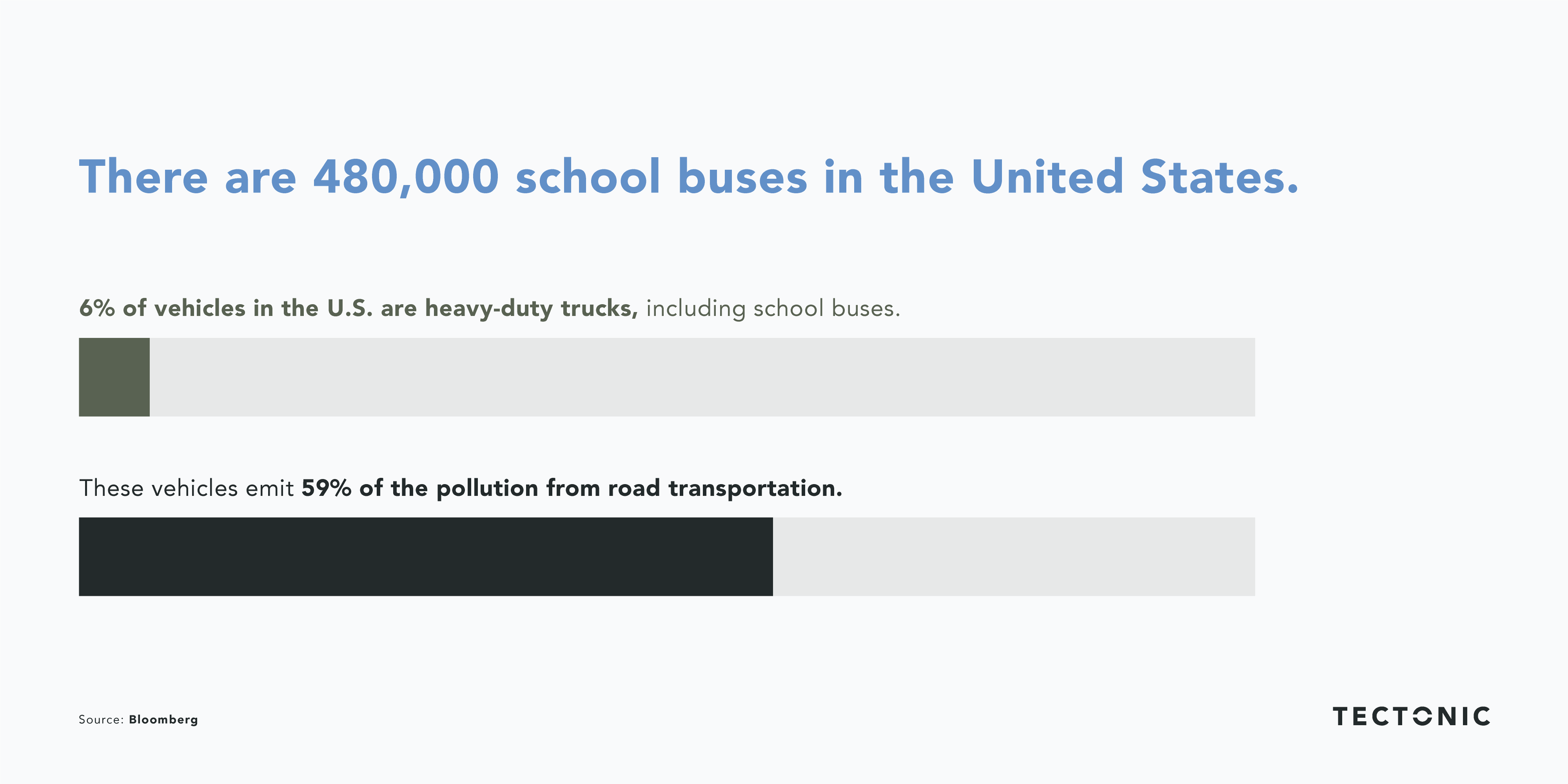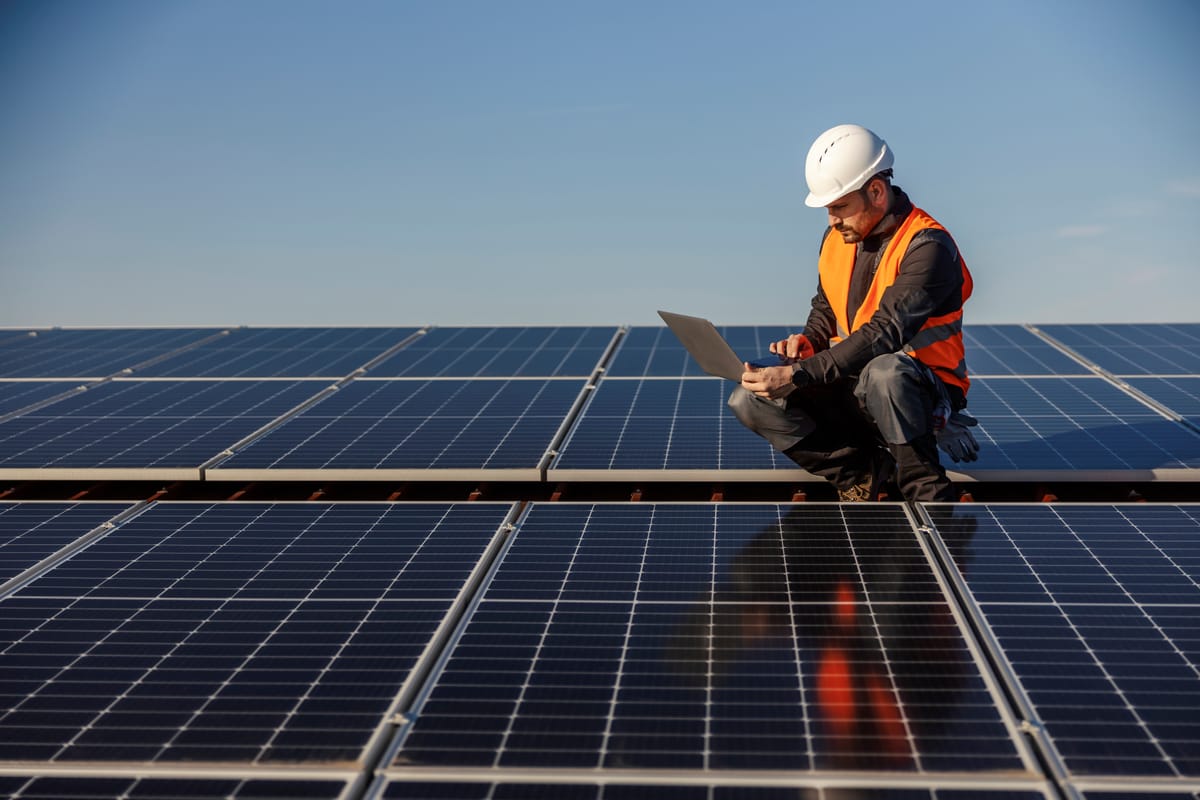We have a full set of stories heading into the holiday weekend, including a look at the growth of green jobs in the United States, the development of a fully electric railway network in India, and steps to accelerate renewable energy projects in Germany. And as kids head back to school, we're exploring Oakland's fully electric school bus fleet and Lego's commitment to recycled materials.
Follow Tectonic on Instagram and LinkedIn for regular updates about the innovators and innovations moving climate ambition into action.
Growth in green jobs: Employment in clean energy grew at more than double the pace of the broader economy last year. Jobs in clean energy rose 142,000, or 4.2%, compared to 2% for the rest of the economy, and accounted for more than half of the new jobs in the U.S. energy sector. In construction, 28,000 jobs were created to build solar and battery factories, offshore wind ports, and warehouses for clean energy products. Idaho led clean energy employment growth at 7.7%, followed by Texas at 6% and New Mexico at 5.9%.
Biden Administration expands solar and EVs infrastructure: To jumpstart permitting and accelerate development, the Biden Administration announced 31 million acres of federal lands across 11 Western states suited for solar projects. The White House also announced $521 million in grants to build and deploy more than 9,200 EV charging ports. This is part of a $5 billion program created by the Inflation Reduction Act to expand EV infrastructure and develop a nationwide network of 500,000 ports no more than 50 miles apart on the nation's busiest highways. The United States currently has 192,000 public charging ports.
Climate leaders from the U.S. and China set to meet next month: Top U.S. climate advisor John Podesta will meet with his Chinese counterpart, Liu Zhenmin, next month. The two sides will work to advance cooperation on climate finance to accelerate the energy transition in developing countries, new pledges for emissions cuts by 2035, efforts to foster a circular economy, and other key priorities ahead of the COP29 climate summit later this year in Azerbaijan. In separate reporting, China's top energy officials downplayed speculation that the nation had already hit peak emissions years ahead of its 2030 target.
India's electric railway: India's main rail network, which is 40,000 miles long, is 96% electric and could be fully electric by the end of the year. The electric trains are less expensive to operate, can carry more freight or passengers than diesel, and reduce overall health impacts from pollution. Local experts attribute the speed in which the country moved over the last decade to clear prioritization from the prime minister, along with fast-tracked permits for land, transmission access, and construction, and investment to upgrade existing rail infrastructure. In comparison, Switzerland’s rail network is also nearly 100% electric, South Korea is 78%, China is 75%, and the EU is 56%. The U.S., where most rail is privately owned, is only 1% electric. While the shift to electric trains is promising, three-fourths of India’s power generation still comes from coal, meaning the trains' electricity can be dirty.
Paris embraces biking: Paris Mayor Anne Hidalgo's reforms are encouraging residents to choose bikes over cars. Policies include removing 50,000 parking spots and adding more than 800 miles of bike lanes since 2014, with plans to add another 100 miles by 2026. Today, 11.2% of trips in Paris are made by bike, compared to 5% in early 2020, while only 4.3% are made by car. The changes have contributed to a 40% decline in air pollution.
Canada's wildfires are a significant source of emissions: If they were a country, the wildfires in Canada's boreal forests would have been the fourth largest contributor of carbon emissions in 2023, behind only China, the U.S., and India. The wildfires also raise concerns about how much carbon forests will continue to absorb in the future, meaning scientists may need to reconsider past calculations on emissions reductions to maintain goals established by the Paris Agreement.
Germany expedites renewable energy development: Germany is deploying more renewable energy than any other European country, and industry executives attribute the change in pace to reforms that have reduced red tape and permitting. In the wake of the invasion of Ukraine, the country designated clean-energy projects as "overriding public interest" serving national security, required states to allocate 2% of their land for wind turbines, and cut the number of environmental assessments required for project development. The country is targeting 80% of its electricity from renewables by 2030.
Oakland's school buses are fully electric: Oakland became the first major school district to transition to a 100% electrified school bus system. Working with Zum, the district deployed a fleet of 74 electric school buses, which will help remove 25,000 metric tons of greenhouse gases from the environment. In a previous Weekly Brief, we highlighted how Oakland's buses equipped with vehicle-to-grid (V2G) technology will also provide 2.1 gigawatt-hours of electricity during peak power usage, enough to power 300-400 homes.
“Student transportation is the largest mass transit system in the nation, moving 27 million students twice daily. Today, over 90% of the nation's 500,000 school buses run on carbon-based fuels, releasing over 8.4 million tons of greenhouse gases annually, exposing students and communities to harmful fumes every day.” — Zum

Lego pays more for recycled plastic: The chief executive of Lego reported the company pays up to 60% more for plastic resin made from renewable or recycled materials. The producer is willing to pay higher prices to stimulate the supply of greener raw materials as it works towards a 2032 goal of making all of its products from renewable and recycled materials.
Meta and Google look to geothermal to power data centers: Meta announced a deal this week with Sage Geosystems to develop up to 150 megawatts of geothermal energy — roughly enough electricity for 70,000 homes — to power the company's data centers. Google has a partnership with Fervo Energy for a 5-megawatt pilot in Nevada with a deal to supply much more power in the future. Fervo is currently building a 400-megawatt facility in Utah to sell electricity in Southern California starting in 2026.
Nuclear power in Ghana: The U.S. will help Ghana build the country's first small modular reactor, setting a path towards larger nuclear energy deployment in the region. U.S.-based NuScale Power will develop the project, and it beat companies in France, China, South Korea, and Russia for the contract.


